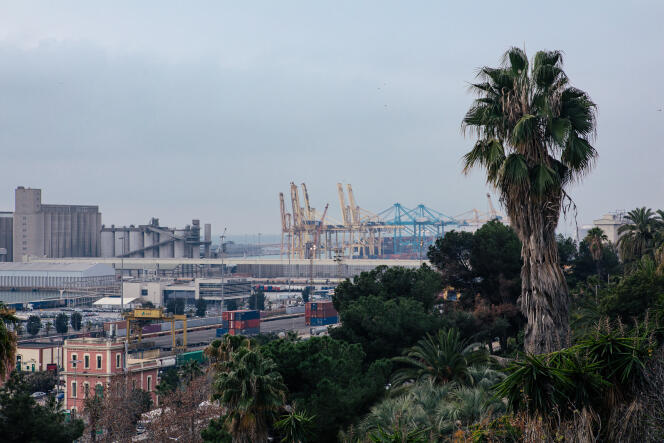


Less than a month before the May 12 regional elections in Catalonia, with drought being the residents' main concern, according to the March barometer of the Center for Study of Opinions, the Catalan government is changing strategy. Gone is the idea of shipping water from the Sagunto desalination plant near Valencia.
On Thursday, April 18, to tackle the consequences of the extreme drought that has been raging in northeastern Spain for over three years, the Catalan government announced the commissioning of a floating desalination plant in the port of Barcelona and 12 mobile desalination plants in the Alt Empordà region. These are to guarantee drinking water supply to Barcelona and the municipalities of the northern Costa Brava over the coming months.
Above all, the last-minute decision is a way to act quickly and in a targeted manner, when spring has done little to relieve stress on the region's water reserves. The water reservoirs supplying Barcelona went back up from 15% to 18% capacity but remain extremely low before the hottest months of the year. "The situation is all the more worrisome because when the level of the reservoirs falls below 10%, it becomes very difficult to clean up the sediment-laden water," said Julio Barea, a hydrogeological engineer and Greenpeace spokesman.
As a first step, eight mobile desalinators will be installed in June, on the Costa Brava, in Roses and Empuriabrava, supplying water to 13 municipalities in the Emporda region, from Portbou to Castello d'Empuries and Cadaqués. Each will supply 1,000 cubic meters of water per day, or 1 million liters. That's enough to cover 35% of demand in the northern Costa Brava, at a cost of around €10 million. "Either we found a solution, or the tap water supply of these 13 municipalities would have been in danger this summer," said regional minister for climate action David Mascort.
In a second phase, four further mobile desalinators are scheduled to go into operation on the Costa Brava at the end of the summer, should the drought continue. In the port of Barcelona, a floating desalination plant capable of supplying 40,000 cubic meters per day is due to come on stream around October. At that time, the metropolitan area should enter phase II of the emergency, if weather forecasts are confirmed. At a cost of almost €100 million, it could cover 6% of the consumption of Barcelona and its suburbs.
"It's a more economical solution, more environmentally sustainable, and much more stable," Mascort explained. The cost of producing and transporting cargo water would have been €10 per cubic meter, compared with €6 with the new temporary infrastructure. This is still six times more than the water produced in Catalonia's two existing desalination plants, at Prat de Llobregat and Blanes, which produce 80 cubic hectometers of drinking water a year and 60 times more than the cost of traditional water purification. The regional government promises that residents' bills, which have recently increased, will not go up any further.
You have 23.79% of this article left to read. The rest is for subscribers only.
